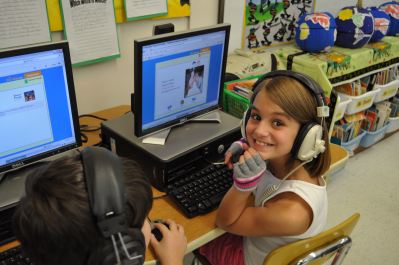Assistive Technology
An assistive technology device is any item, piece of equipment, or product system, whether acquired commercially "off the shelf," modified, or customized, that is used to increase, maintain, or improve the functional capabilities of students with a disability. Assistive technology devices do not include medical devices that are surgically implanted.
For many students with differing abilities, assistive technology provides a bridge to overcome barriers to participation and progress in school. Assistive technology facilitates success and independence for students while they work toward their academic, social, communication, occupational and recreational goals. By addressing the student's unique needs, assistive technology can:
- Reduce barriers to learning;
- Assist students in progressing in their educational program;
- Provide equitable access to the State's learning standards;
- Provide students with independence as they participate and progress along with their peers in school and in post-school living, learning and working; and
- Support increased social and environmental access and completion of everyday tasks.
For additional information on assistive technology, please see NYSED's Office of Special Education.
- 2017 Policy Brief on Assistive Technology for Students with Disabilities
- 2016 Webcast on Assistive Technology for Students with a Disability
- NYS School for the Blind Assistive Technology Resources and Tips
- Accessible Instructional Materials (AIM)
Additional resources:
- Helpful resources from Wisconsin’s Department of Public Instruction
- Helpful resources from Virginia's Department of Education. Site includes a guide to addressing assistive technologies in the district's educational technology plan
- Assistive Technology TRAID program
- Techmatrix: Assistive and educational technology tools and resources to support learning for students with disabilities and their classmates






